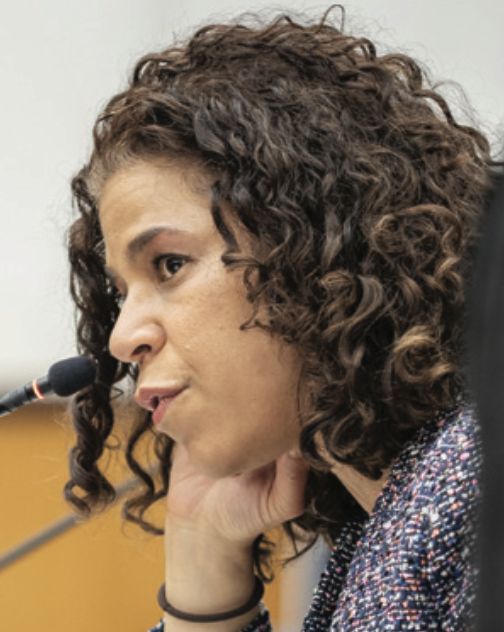City Council accuses RRHA of overstepping in Gilpin deal
George Copeland Jr. | 7/31/2025, 6 p.m.

The Richmond City Council is questioning if the Richmond Redevelopment Housing Authority (RRHA) followed the law in its plans to redevelop the city’s oldest public housing neighborhood. Council members unanimously passed a resolution this week alleging the group broke state law when RRHA CEO Steven Nesmith signed a redevelopment agreement for Gilpin Court.
The resolution, introduced by 3rd District Council member Kenya Gibson, cites sections of Virginia housing authorities law barring construction contracts and redevelopment plans until approval “by the governing body” of the locality, and argues the signed agreement qualifies.
“The law is very clear that before the RRHA has the authority to be able to go into an agreement, our body needed to vote in support of that, and that did not happen,” Gibson said.
 Kenya Gibson
Kenya GibsonThe resolution, introduced and passed during Monday evening’s Council meeting, directs City Attorney Laura Drewry to notify RRHA that Council approval is required before entering into a master development agreement for Gilpin Court’s redevelopment.
RRHA leaders proposed a phased transfer of the neighborhood to their nonprofit subsidiary, the Richmond Development Corporation, months earlier to ensure funding for the redevelopment.
The proposal has faced frequent criticism from residents and housing advocates and was rejected by the RRHA Board of Commissioners in April. Another vote, initially planned for July, was delayed until Wednesday, Sept. 17.
Gibson’s resolution also questions whether the agreement received approval from the RRHA Board and could lead to Council hearings and a vote on the redevelopment plans. Its introduction drew criticism from Gilpin residents, housing advocates and Council members over RRHA’s approach and methods for building support.
“We are not trying to stop redevelopment,” said 5th District Council member Stephanie Lynch. “We are trying to delay displacement because that is what will happen if we were to allow this to move forward.”
 Steven Nesmith, CEO of the Richmond Redevelopment and Housing Authority, during an interview at the agency’s East Broad Street office. The discussion focused on RRHA’s response to City Council’s questions about the Gilpin Court transfer.
Steven Nesmith, CEO of the Richmond Redevelopment and Housing Authority, during an interview at the agency’s East Broad Street office. The discussion focused on RRHA’s response to City Council’s questions about the Gilpin Court transfer.In an interview, Nesmith called the resolution’s arguments a “gross misinterpretation of the law” that he said would be resolved through ongoing discussions between city and RRHA attorneys.
Nesmith also disputed the idea that the agreement was made without RRHA Board approval, as well as claims made by residents and advocates during the meeting, and emphasized the authority’s legal rights in handling RRHA-controlled communities.
“RRHA as a housing authority is obligated to obtain City Council approval to adopt a redevelopment plan when the authority is seeking to create a redevelopment area,” Nesmith said.
“That is distinguished and different from [when] RRHA redevelops its own “Big Six” HUD communities.”
Council President Cynthia Newbille, meanwhile, said she hopes for prompt clarity, discussion and resolution of the matter with RRHA to ensure efforts to improve conditions for public housing residents continue moving forward.
“At the end of the day, we will still need to get to the table,” Newbille said. “We have major public housing communities across this city and all … are of concern to me.”







